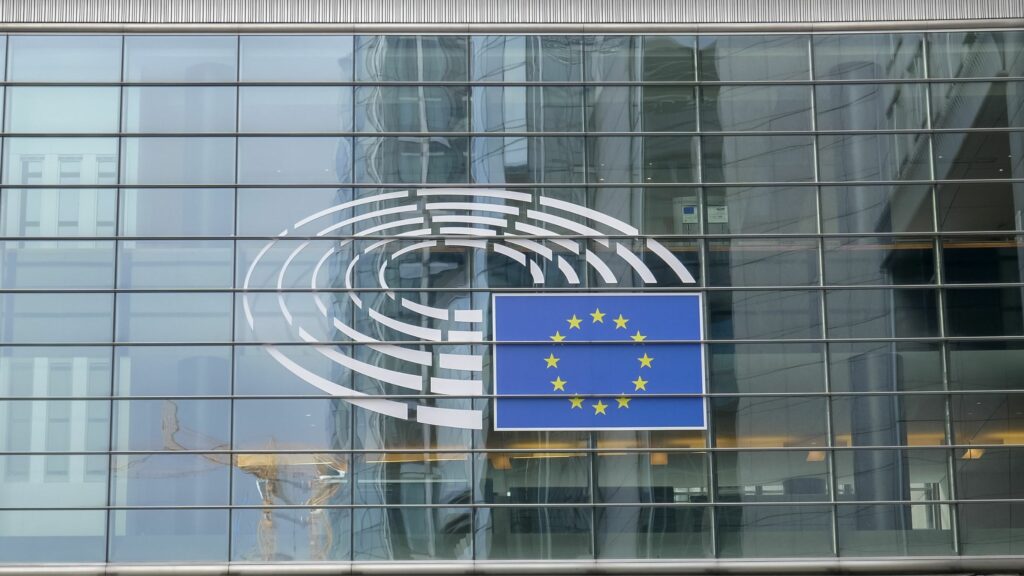A Commission decision authorising or prohibiting a state aid measure that can be implemented without any intermediate rules is a “regulatory act” that can be challenged by “directly concerned” undertakings. Introduction Any natural or legal person who is the addressee of an act of an EU institution can challenge that act before EU courts. This is a right that is […]
State Aid Law
Blog
State Aid Uncovered Blog
In Lexxion’s State Aid Uncovered blog, Prof. Phedon Nicolaides publishes weekly critical analyses of recent State aid judgments and decisions. Each post presents the key points of a court judgment or EU Commission decision, places it in the context of similar case law or practice, assesses the underlying reasoning and highlights any inconsistencies or contradictions.
Guest contributions from other State aid experts will also be published on the blog at irregular intervals to complement the content of the blog posts.
26. July 2022 |
State Aid Uncovered
by Phedon Nicolaides
The revenue from the economic activities of a research organisation must cover the full cost of those activities. Introduction Member States use extensively the GBER to support R&D schemes. If we exclude the measures that were implemented in the context of covid-19 and now those which are financed by the recovery and resilience fund, not more than a dozen measures […]
19. July 2022 |
State Aid Uncovered
by Phedon Nicolaides
A private land owner changes rent at market rates. But it may accept lower rent if the user of the land incurs costs to improve it. Comparative analysis to determine the market value of land must take into account not only the particularities of the various land plots, but also the particularities of the various rental contracts. Introduction When the […]
12. July 2022 |
State Aid Uncovered
by Phedon Nicolaides
Introduction State guarantees may constitute State aid if they are not priced at market rates. A properly priced guarantee reflects the risk assumed by the public authority that issues it and the collateral, if any, that the beneficiary undertaking can pledge. The State aid that is embedded in a guarantee that is priced below the relevant market rate is operating […]
5. July 2022 |
State Aid Uncovered
by Phedon Nicolaides
When a market operator invests in an undertaking in difficulty it also considers the possibility of restructuring, sale or closure. Introduction The answer to the question posed in the title of this article is “because the loan enables the undertaking to become viable again and repay the loan with interest”. It is now well established in the case law that […]
30. June 2022 |
Guest State Aid Blog
by Lexxion Publisher
Reading the Editorial by Andreas Bartosch (EStAL 1/2022, 1), I feel tempted – not to worship Satan or the GBER, but to add some more colours to the picture drawn up by the esteemed colleague. It is true that the Block Exemption Regulations were intended to save the Commission Services from „lästigem Alltagsgerümpel“ (“boring routine rubbish”, as Andreas Bartosch dubbed […]
28. June 2022 |
State Aid Uncovered
by Phedon Nicolaides
Individual aid need not be capable itself to remedy serious economic disturbance in the economy of a Member State. It is sufficient that it contributes to that effect. Introduction On 22 June 2022, in case T‑657/20, Ryanair v European Commission, the General Court confirmed once more that Member States have a right to grant State aid to the undertakings of […]
21. June 2022 |
State Aid Uncovered
by Phedon Nicolaides
State aid is deemed to be granted even if the benefit cannot be quantified in advance and even if state resources are transferred at a future point in time. Introduction The precise date on which State aid is granted can be important such as, for example, when calculating the present value of aid granted in tranches at different points in […]
14. June 2022 |
State Aid Uncovered
by Phedon Nicolaides
A special tax rule can constitute the reference or normal system of taxation if it is “severable” from other tax rules and has its own legal logic. Introduction The application of State aid rules to the tax treatment of transactions between companies that belong to the same multinational group is contentious. During the past three years or so, the Commission […]
7. June 2022 |
State Aid Uncovered
by Phedon Nicolaides
A non-profit provider of free services which are in competition with similar services on the market is an undertaking. Introduction The decentralisation of State aid policy of the past decade has made it easier for the Member States to achieve their public policy objectives. By using blog exemption regulations and decisions, they can grant State aid faster, without having to […]
19. April 2022 |
State Aid Uncovered
by Phedon Nicolaides
The resources of a public undertaking necessarily count as “state resources”, regardless of the degree of autonomy of the public undertaking. However, not every decision of a public undertaking can necessarily be “imputed” to the state. A prudent investor may take into account authorised State aid. A prudent investor may tolerate short-term losses if it can realise sufficient profits in […]
12. April 2022 |
State Aid Uncovered
by Phedon Nicolaides
Compensation that guarantees a normal or fair rate of return eliminates risk that is inherent in market transactions and therefore confers an advantage in the meaning of Article 107(1) TFEU. Introduction On 23 March 2022, the European Commission announced plans to mitigate the spike in energy prices caused by the war in Ukraine. Chief among those plans were proposals for […]
5. April 2022 |
State Aid Uncovered
by Phedon Nicolaides
Resources transferred from one public authority to another for the purpose of being used to subsidise undertakings do not fall within the scope of Article 107(1) TFEU if the recipient authority has discretion in their disbursement. Introduction A public authority that carries out economic activities becomes an undertaking that is subject to the prohibition of Article 107(1) TFEU. When the […]
25. March 2022 |
State Aid Uncovered
by Phedon Nicolaides
Introduction A new Temporary Framework which is called “Temporary Crisis Framework” [TCF] to distinguish it from the currently applicable Temporary Framework on covid-19 related State aid was adopted on 23 March 2022, almost two years to the date of the publication of the rules on covid-19 related State aid.[1] The purpose of the TCF is to enable Member States to […]
22. March 2022 |
State Aid Uncovered
by Phedon Nicolaides
State aid rules apply both to direct and indirect beneficiaries of aid. Introduction This week’s article reviews a Commission decision and a judgment of the Court of Justice. The Commission decision concerns Italian vouchers for SMEs to pay for the use of fast broadband services. The judgment deals with a German measure supporting milk quality tests. In both cases an […]
15. March 2022 |
State Aid Uncovered
by Phedon Nicolaides
Any non-SGEI obligation attached to a public service contract may not raise the cost of the service above the level of the “least cost to the community”. Introduction It is very rare for measures of compensation for public service obligations to be found by the European Commission to be compliant with the Altmark conditions. Nonetheless, in the past two years […]
9. March 2022 |
State Aid Uncovered
by Phedon Nicolaides
The “subscribed share capital” of a company includes the capital that is already paid and any future amount that shareholders have irrevocably committed to pay. Introduction Undertakings in difficulty may not receive any kind of aid except aid to compensate for damage caused by a natural disaster or exceptional occurrence and, under strict conditions, rescue and/or restructuring aid. In most […]
1. March 2022 |
State Aid Uncovered
by Phedon Nicolaides
Guaranteed supply of electricity at fixed prices to a state-owned network operator involves a transfer of state resources to the supplier. Guaranteed supply of electricity at fixed prices confers an advantage to the supplier. Introduction Member States are allowed to take measures to ensure the security of energy supplies. There is a variety of such measures: imposition of obligations on […]
22. February 2022 |
State Aid Uncovered
by Phedon Nicolaides
Compensation for damage caused by protected animals is State aid. Member States may categorise compensatory payments as de minimis aid and refuse to make payments in excess of the de minimis threshold. Introduction Advantage in the meaning of Article 107(1) TFEU is any benefit granted by the state that is not available under normal market conditions. Normal market conditions are […]
15. February 2022 |
State Aid Uncovered
by Phedon Nicolaides
An event that causes damage for which the state is liable is distinct from the act that confers the right for compensation. Introduction The concept of State aid covers all resources that are controlled by the state, regardless of the reason why such resources may be transferred to or put at the disposal of an undertaking. On 25 January 2022, […]























